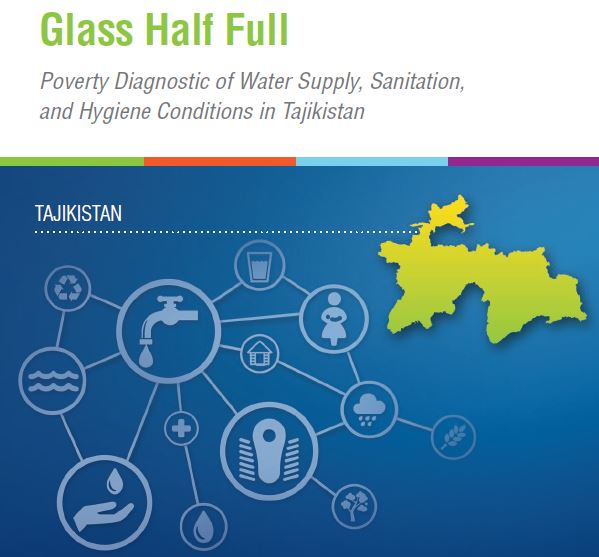Glass Half Full Poverty Diagnostic of Water Supply, Sanitation, and Hygiene Conditions in Tajikistan
Despite Tajikistan’s progress in reducing poverty, WASH conditions across the country remain poor and unequally distributed. Service improvements since 2000 have generally taken place in the lower tiers of WASH services. A large majority of the rural population and the population living in certain regions—particularly in Gorno-Badakhshan Autonomous Oblast (GBAO) and Khatlon regions, and to some extent, Sughd region—continue to face the most severe conditions. Even in urban oblast centers and in the capital Dushanbe, the availability and quality of services is generally poor. This imposes high costs on the population, particularly the less well-off. These costs include monetary and nonmonetary coping costs, as well as more serious adverse impacts on developmental outcomes of children—which not only affect the well-being of the current population, but will likely have significant and irreversible impacts on the next generation. Institutional gaps and the unfulfilled potential of consumer engagement in decision making, accompanied by the large amount of capital investments required to upgrade the degraded infrastructure, overall paint a grim picture for the sector’s future. The diverse evidence synthesized in this report can inspire the government, civil society, and the international community to accelerate their actions toward addressing severe WASH deprivation in Tajikistan. At the policy level, the report can inform the ongoing sector reform discussions, which aim to address the complexities of sector governance through greater regionalization of certain service delivery functions. While the institutional reform process continues at the national level, the findings can also inform the targeting, design, and implementation of new investments in the WASH sector— particularly in regions that are unlikely to receive large-scale water supply and sewer network investments in near future. In the context of complex environment for institutional reforms, it is necessary to employ a two-pronged approach that promotes stand-alone investments across rural Tajikistan alongside the macro-level reform discussions. In the short term, there are immediate measures that the government, civil society, and the international community can take to improve the availability and quality of drinking water across Tajikistan. The analysis has shown that even in the capital Dushanbe, the majority of the population does not have water meters. This results in inefficient use of water resources by consumers, interruptions in water availability (especially in summer months), and difficulties in fee collection by service providers. Installation of water meters in areas where water supply networks already exist can lower the rate of overconsumption and water waste. Several sanitation and hygiene interventions can also yield results in the short term, particularly in rural areas, schools, and health clinics where facilities tend to be in poor condition.
